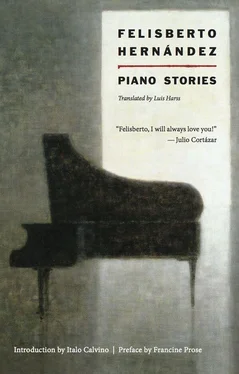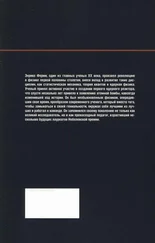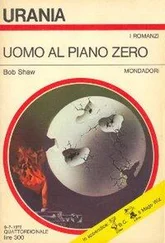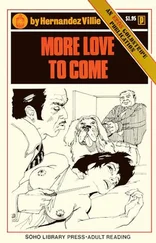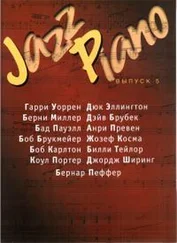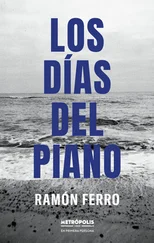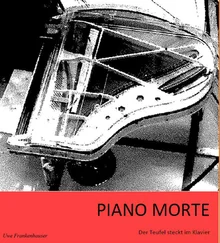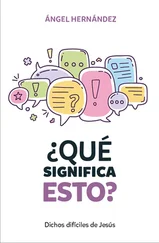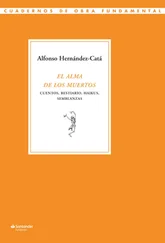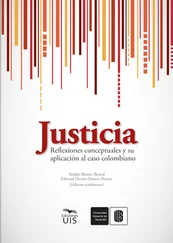Felisberto Hernandez - Piano Stories
Здесь есть возможность читать онлайн «Felisberto Hernandez - Piano Stories» весь текст электронной книги совершенно бесплатно (целиком полную версию без сокращений). В некоторых случаях можно слушать аудио, скачать через торрент в формате fb2 и присутствует краткое содержание. Год выпуска: 2014, Издательство: New Directions, Жанр: Современная проза, на английском языке. Описание произведения, (предисловие) а так же отзывы посетителей доступны на портале библиотеки ЛибКат.
- Название:Piano Stories
- Автор:
- Издательство:New Directions
- Жанр:
- Год:2014
- ISBN:нет данных
- Рейтинг книги:4 / 5. Голосов: 1
-
Избранное:Добавить в избранное
- Отзывы:
-
Ваша оценка:
- 80
- 1
- 2
- 3
- 4
- 5
Piano Stories: краткое содержание, описание и аннотация
Предлагаем к чтению аннотацию, описание, краткое содержание или предисловие (зависит от того, что написал сам автор книги «Piano Stories»). Если вы не нашли необходимую информацию о книге — напишите в комментариях, мы постараемся отыскать её.
Piano Stories
Piano Stories — читать онлайн бесплатно полную книгу (весь текст) целиком
Ниже представлен текст книги, разбитый по страницам. Система сохранения места последней прочитанной страницы, позволяет с удобством читать онлайн бесплатно книгу «Piano Stories», без необходимости каждый раз заново искать на чём Вы остановились. Поставьте закладку, и сможете в любой момент перейти на страницу, на которой закончили чтение.
Интервал:
Закладка:
We had all been miraculously united and I felt not the least regret.
That night I did not play the piano. They begged me to stay and showed me to a bedroom on the side of the house where the ivy grew. As I started up the stairs I noticed a cord that ran from the grandfather clock all the way up the winding staircase. I followed it into the bedroom, up to the canopied bed, where it ended, tied to one of the slender bedposts. The room had ancient, paunchy furniture that shone yellowish in the lamplight. I put my hands on my stomach and eyed the old man’s stomach. His last instructions that night were:
“If you can’t sleep and want to know what time it is, pull on the cord. You’ll hear the dining room clock from here. First it will give you the hour, then, after a pause, the minutes.”
Suddenly he began to laugh and went out, waving good-night. He was probably remembering one of the stories, the one about the drunkard who talked to a clock.
He was still making the wooden stairs creak with his heavy steps when I started to feel alone with my body: it had absorbed all that food and drink like an animal swallowing other animals, and now it would have to struggle with it all night long. I stripped it naked and made it go barefoot around the room.
Later, in bed, I tried to figure out what I was doing with my life those days. I fished a few recent events out of my memory and thought of some people who were very far away. By then I was sinking into something like the bowels of silence, feeling sad and a bit lewd.
The next morning I looked back over my life with a smile, almost happily. It was very early. I dressed slowly and went out into a corridor built over the edge of the garden. On this side, too, there were weeds and tall, shady trees. I heard the old man and his daughter talking and realized they were on a bench right beneath me. I caught her words first:
“Ursula is unhappier now. She not only loves her husband less, but loves someone else more.”
The old man asked:
“Can’t she get a divorce?”
“No, because she loves her children and the children love her husband and not the other man.”
Then the old man said timidly:
“She could tell the children that her husband has several mistresses.”
She got up angrily:
“Just like you to say that! When will you understand Ursula? She would never say such a thing!”
I was very much intrigued. They couldn’t be talking about the dwarf: her name was Tamarinda. Yet the old man had told me they lived completely alone. So where did this news come from? Could it have reached them during the night? After her burst of anger the girl had gone into the dining room. In a while she came back out into the garden carrying a salmon-colored parasol with white gauze ruffles. She did not come to the table for lunch. The old man and I ate and drank little. Afterward I went out to buy a book suitable for reading in an abandoned house among weeds, on a still night and a full stomach.
On my way back, just ahead of me, I saw a poor old black man limp past the balcony. He wore a green hat with a wide brim, like a Mexican. Just then a patch of white skin appeared in the balcony, behind the green pane.
That night, as soon as we sat down to eat, I started to tell my stories, and she did not recite her poems.
The belly laughs the old man and I let out covered up for the brutal amounts of food and drink we were putting away.
There was a moment when we fell silent. Then the daughter said:
“I want some music tonight. I’ll go in ahead of you and light the candles on the piano. It’s been a long time since they were lit. The piano will be happy, poor thing: it will think Mother is back.”
Neither the old man nor I said another word. After a while Tamarinda came in to say the young lady was waiting for us.
When I was about to strike the first chord, the silence was like a heavy animal with a paw raised. The chord broke into rippling sounds like the wavering candlelight. I tried another chord, as if advancing one more step — and almost at once, before I could move on, a string snapped. The girl cried out. The old man and I leaped up. He bent over his daughter, who had her face in her hands, and tried to calm her, telling her the strings were old and rusted. But she would not take her hands off her face or stop shaking her head. I didn’t know what to do: I had never snapped a string before. I asked to be excused, and on the way to my room I was afraid of stepping on the parasols in the corridor.
The next morning I slept late and missed part of the conversation on the garden bench, but I was in time to hear the girl say:
“Ursula’s love came wearing a big green hat with a wide brim.”
I couldn’t believe she meant the old black man I had seen limping by the previous afternoon, nor could I imagine who might have brought the news during the night.
At noon the old man and I had lunch alone again. It was my chance to say:
“There’s a lovely view from my corridor. I was there earlier but didn’t stay because you were discussing a certain Ursula and I was afraid to intrude.”
The old man stopped eating and whispered:
“You heard us?”
I realized he wanted to confide in me, so I answered:
“Yes, I heard everything. But I don’t see how Ursula can find that old black man handsome with his limp and that wide green hat.”
“Oh, but you haven’t understood,” he said. “Since my daughter was knee-high she’s been making me listen to her stories and take part in the lives of the characters she invents. And since then we’ve been keeping track of them as if they really existed and we kept hearing from them. She imagines them wearing and doing things she sees from the balcony. If yesterday she saw a man in a green hat go by, it’s not surprising the hat turned up today on one of her characters. I’m too slow to keep up with her and she gets angry with me. Why don’t you help her? If you want I’ll. .”
I didn’t let him finish.
“I wouldn’t think of it. I’d only invent things that would hurt her.”
That evening, too, she was absent from the table. The old man and I ate, drank, and chatted until well into the night.
In bed, afterward, I heard a board creak; it wasn’t the furniture. It took me a while to realize someone was coming up the stairs. The next moment there was a soft rap on my door. I asked who it was and the girl’s voice answered:
“It’s me. I want to talk to you.”
I switched on the lamp and opened the door a crack, and she said:
“It’s no use hiding behind the door. I can see you in the mirror, standing there without a stitch on.”
So I shut the door and asked her to wait.
When I invited her in she walked straight across the room to another door I had not been able to open. She opened it with the greatest ease and groped her way into the darkness of some other room. She came right back out with a chair that she placed by my bed. She reached into a blue cape she was wearing, took out a notebook, and started to read poems from it. I had to make a great effort not to fall asleep. I tried to force my eyes open but all I could do was roll them back, so that I must have looked like I was dying. Suddenly she cried out, as she had done when the piano string snapped, and I jumped up in bed. In the middle of the room was a huge spider. By the time I saw it it was no longer walking: it had gathered up three of its hairy legs as if ready to pounce. I threw my shoes at it and missed. I got out of bed, but she told me to stay away or it would jump at me. So I took my lamp and edged along the walls of the room to the washbasin, from where I threw a brush, a cake of soap, and the lid of the soap dish. The soap dish finally hit it and it rolled up into a dark woolly ball. She asked me not to tell her father, who didn’t like her to be up working or reading so late. When she had left I squashed the spider with the heel of my shoe and went back to bed without turning out the light. As I was about to fall asleep I felt my toes curl. I thought the spider was in bed with me and I jumped up again.
Читать дальшеИнтервал:
Закладка:
Похожие книги на «Piano Stories»
Представляем Вашему вниманию похожие книги на «Piano Stories» списком для выбора. Мы отобрали схожую по названию и смыслу литературу в надежде предоставить читателям больше вариантов отыскать новые, интересные, ещё непрочитанные произведения.
Обсуждение, отзывы о книге «Piano Stories» и просто собственные мнения читателей. Оставьте ваши комментарии, напишите, что Вы думаете о произведении, его смысле или главных героях. Укажите что конкретно понравилось, а что нет, и почему Вы так считаете.
